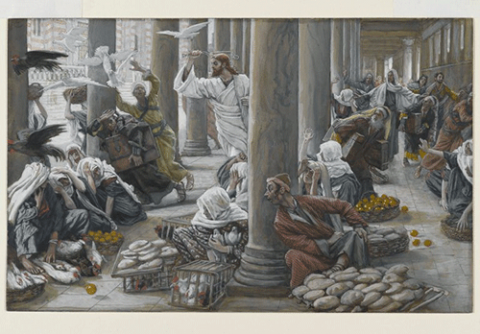In the very first class on the Principles of Economics we teach our students how beneficial trade is. We explain that voluntary exchange (trade) increases overall welfare and is mutually beneficial. Economists tend to regard this basic “principle of economics” as an axiom, providing the basis for many other principles of economics and, most importantly, the notion (or fallacy) that “the markets know best”…
Perhaps paradoxically, despite the many beneficial features of trade, merchants (i.e. professional traders), rarely enjoy social esteem. One reason for such a state of affairs could be the prevalence of underhand business practices in “voluntary exchanges” that are subject to strong “information asymmetries,” such as horse trading. Indeed, there are certain conditions that need to be met in order for trade to be truly beneficial for both parties. In particular, as Holley (1986) put it (A Moral Evaluation of Sales Practices. Business & Professional Ethics Journal 5, pp. 3-21), trade is no longer mutually beneficial if an exchange involves information asymmetries, is not voluntary, or if any of the parties is not rational.
It is commonly assumed (following Jean Chardin’s theory about the etymology of the name Georgia) that the ancient Greeks called us GEORGIA (that is translated into English as a "tiller of the land") because we were a people specialized in agriculture. Whether this is true or not, Georgians have never been famous for their trading skills. King David IV (The Builder) introduced tax exemptions for Muslims, Jews and Armenians, who were considered expert merchants at the time, precisely to stimulate trade. Despite such preferential treatment for merchants, trade remained a lowly occupation for many Georgians, a sentiment expressed by Shota Rustaveli in his well-known: “You merchants are cowards.” Such an attitude persisted through the centuries. Faced with a lack of domestic talent, the state had to continue luring foreign merchants to Georgia as late as in Erekle II’s times.
While a lot has changed since then, we are still GEORGIA in the Greek sense; a very large part of our employment is in agriculture. However, as part of our transition to a “commercial society,” as Adam Smith liked to call it, trade has assumed a very significant share of the country’s economy. In 2011, retail trade and repairs was the second largest sector by employment after agriculture, providing 10% of total employment. Moreover, its contribution to Georgia’s value added is the largest and is still growing.
So far, so good, but a closer look at the data suggests that some of the stereotypes concerning merchants’ activities are still in place. A widespread opinion – to which many Georgian economists would probably subscribe – is that a farmer who has worked hard to produce tomatoes deserves more compensation than a merchant. Merchants are believed to be earning an easy buck without creating any material value. The hardships and risks associated with trading activities are usually ignored, leading to an underestimation of their contribution to overall welfare. The most important part of the story is that even the merchants themselves do not value their contribution to society at large.
If we look at the latest available Caucasus Barometer data (2011), we notice that job dissatisfaction is quite high in the “trade and repairs” sector, which is the second highest after the “agriculture, hunting and forestry” sector. If we plot dissatisfaction against salaries, we observe a (weak) inverse proportional relationship between these two variables. The logic is quite clear: dissatisfaction is higher in sectors with lower average pay. However, even in this case, “trade and repairs” exhibits a higher than predicted share of dissatisfied workers. For further illumination of this point, we can compare the “healthcare and social work” and the “trade and repairs” sectors. Even though the average salaries in the two sectors are roughly similar, the share of unhappy healthcare employees (7%) is much lower than the share of those involved in trade (19%). Moreover, the part of dissatisfaction not explained by salaries does not stem from the feeling that they are undercompensated. On the contrary, people working in trade and repairs, do not consider themselves to be undercompensated, but feel less positive about, or valued at, work compared to those employed in the healthcare sector. Finally, in contrast to lower-paid medical or education staff, those in trade occupations do not see themselves to be performing an important social function.
As Georgian society continues to associate little value with trade activities and trade-related occupations, the quality of trade and tourism services on offer leaves much to be desired. While I have no hard data to prove this point, according to the head of GNTA, service quality in Georgia is the Achilles’ heel of our tourism industry. When visiting Manila this summer, I spotted a banner saying “the customer is King,” which was precisely the attitude I received from every person working in the services sector in the Philippines. Regardless of their earnings or status, they always smiled and were friendly to the customers.
It is high time to learn from this example and understand that trade, like any other economic activity, adds value to society (it really does!), and is a deserving and respectable occupation. Only by doing this will Georgia be able to utilize its God-given geographic location and serve as a regional multi-sector hub and tourist destination.

















Comments